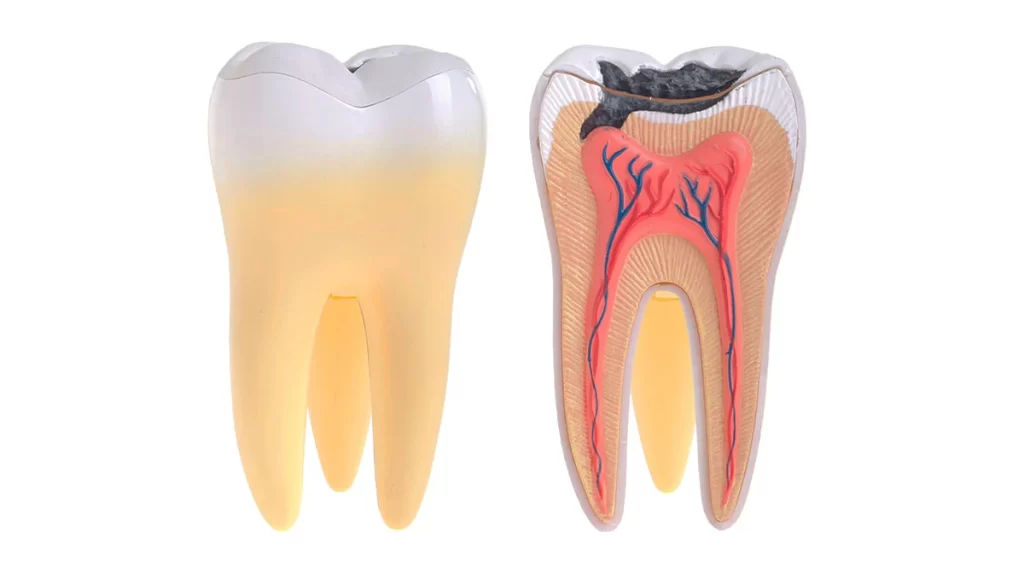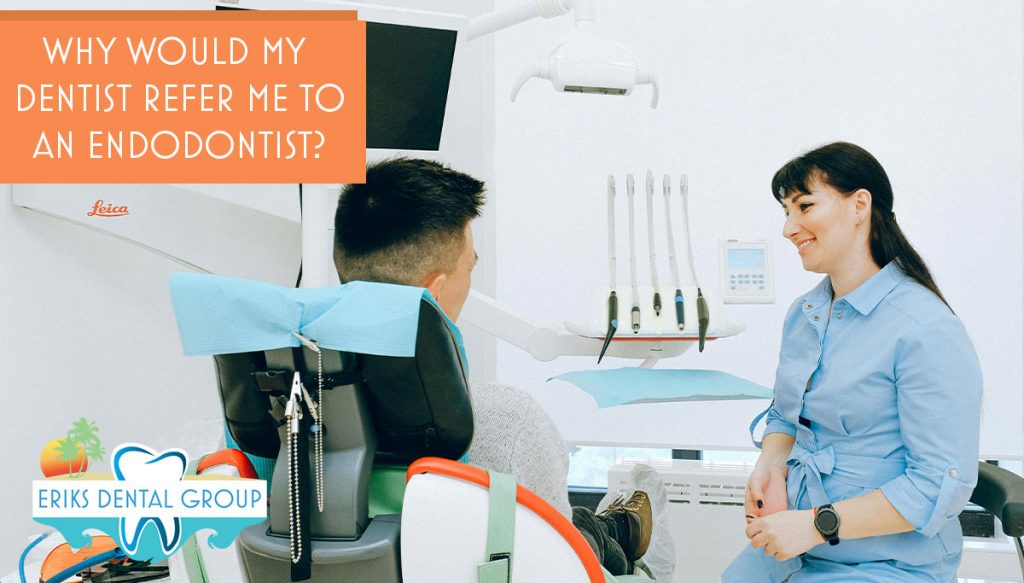When you have your routine dental exam, your dentist will examine your teeth and gums for oral health problems like tooth decay or gum disease. These exams help to find problems early when they’re easier to treat. When a tooth is severely infected or inflamed in the inside of the tooth, known as the pulp, you need a root canal.
What is Endodontics?
Endodontics is a specialized dentistry branch that focuses on the interior of the teeth. This may include the pulp, connective tissues, or nerves. An endodontist works to save teeth with diseased or inflamed nerves, which can cause pain and sensitivity. While they will work hard to save the tooth, a dental crown may also be used to restore functionality at the same time.
Signs of Endodontic Issues

Some of the most common symptoms associated with needing a root canal include:
- Unexplained pain in the lymph nodes
- Swollen, tender, or inflamed gums
- Pimple on the gums
- Swollen jaw
- Loose tooth
- Tooth discoloration
- Tooth sensitivity
Causes of Inner Tooth Damage

Root canal therapy is used to save the natural tooth. Some of the most common causes of inner tooth damage include:
Chips or Fractures
When a large part of the tooth’s surface has become damaged, you may need a root canal.
Extractions/Injury
Injuries to the teeth cause a tooth to become dislodged from its socket. A root canal can only be performed after the endodontist stabilizes the tooth.
Infection
Oral bacteria can invade the tooth’s pulp caused by injury or decay. This can lead to an abscess or bacterial infection when left untreated.
Repeated Dental Procedures
When a tooth is repeatedly drilled into, it compromises its structural integrity. Any opening in the tooth allows bacteria to enter the interior of the tooth, which can lead to the need for root canal therapy.
However, sometimes there are no symptoms at all. This makes it that much more important to schedule regular biannual dental exams. Detecting oral health issues early on is the best way to ensure your oral and general health are always at their best.
How an Endodontist Performs a Root Canal

During a root canal procedure, inflamed or infected tooth pulp, connective tissues, and nerves are removed from a tooth. Endodontists will take time to thoroughly clean the tooth to the bottom of the root canals and tips of the root.
A root canal is usually performed with a local anesthetic that temporarily numbs the area. A dental dam is used to ensure the surgical area is saliva-free. An opening is made into the tooth’s surface and the pulp is completely removed.
The remaining space is shaped, cleaned, and filled with filling material. A temporary filling is placed in the tooth until the permanent crown is ready for placement. X-rays are taken to verify that the tooth is cleaned properly to the correct shape and length.
While extraction is an alternative to root canal therapy, saving your natural teeth is the goal of a professional endodontist. Root canals have a high success rate and saving teeth helps to prevent other issues like bone loss or teeth shifting. The best way to avoid needing one is to keep your teeth free of decay with regular brushing and flossing daily. Bi-annual dental exams and cleanings are also integral to a healthy oral health routine.
Recovery Tips For Post Root Canal

It takes some time for anesthesia to wear off after your procedure. You may want to take a pain reliever when you arrive home to treat the pain before the anesthesia wears off. A soft food diet with foods like cottage cheese, yogurt, smoothies, and soup is great for the first few days after treatment. Avoid chewing on the treated teeth if you’re waiting on your crown. Brush your teeth after every meal and floss at least once a day. Use an antibacterial mouthwash to keep harmful tooth bacteria away.
Schedule an Appointment To Detect Any Potential Endodontic Problems
When your dentist detects oral health issues inside a tooth, they may refer you to an endodontist. Never delay a root canal treatment as it increases your chance of losing your natural tooth and for infection to spread.
At Eriks Dental Group, our Boynton Beach dental team educates our patients on how to care for their teeth at home. This helps keep teeth free of tartar buildup which may help reduce tooth decay or gum disease.
To schedule an appointment for a comprehensive dental exam call our Boynton Beach office at 561-733-4004 or request an appointment online.

